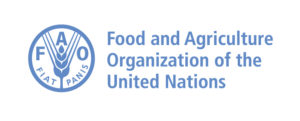Governance
Representatives of members meet at the biennial FAO Conference to review global governance policy issues and international frameworks, as well as to evaluate work carried out and to approve the budget for the next biennium. The Conference elects Council Members, to serve three-year rotating terms to carry out executive oversight of programme and budgetary activities. The Conference also elects a Director-General to a four year term of office, renewable once. The current Director-General, José Graziano da Silva, assumed his functions on 1 January 2012 and was re-elected for a term which expires on 31 July 2019.
FAO’s new focus on governance is driven by the recognition that mission-critical development-related processes affecting food security and nutrition, livelihoods, and the management and sustainable use of natural resources confront increasingly complex governance challenges. Broader, more flexible and responsive, and more capable governance institutions and mechanisms are necessary to improve effective coordination among diverse stakeholders, enabling problem-solving while working towards the achievement of multiple, and sometimes conflicting, objectives.
FAO promotes good practice in addressing governance challenges across its Strategic Objectives by strengthening its contribution to global governance, identifying mission-critical governance issues at national, regional and multilateral levels, strengthening staff capacity to support improved governance and monitoring and evaluating its interventions assessing its experiences for lessons learnt with a view to build our governance-suport capacities.
Departments
FAO is composed of six departments:
Agriculture and Consumer Protection
Economic and Social Development
Fisheries and Aquaculture
Forestry
Corporate Services
Technical Cooperation and Programme Management
Worldwide Offices
FAO’s decentralized network includes five regional offices, nine subregional offices, 80 fully fledged country offices (excluding those hosted in regional and subregional offices), three offices with technical officers/FAO Representatives, and 38 countries covered through multiple accreditation. In addition, the Organization has five liaison offices – and is in the process of opening a sixth – as well as two information offices in developed countries.

